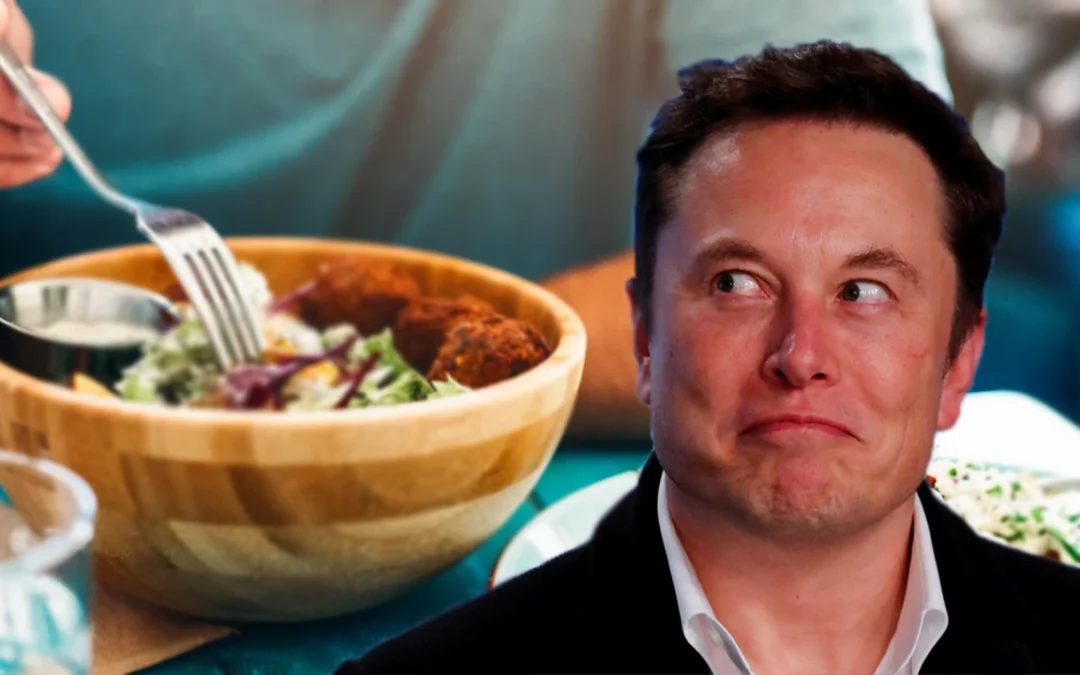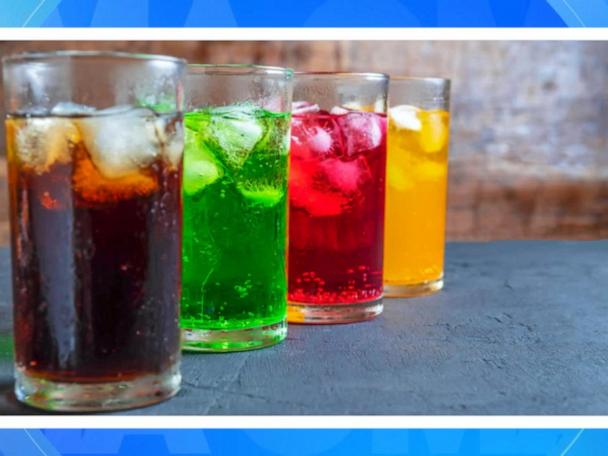
Food is something we trust, something we share with friends, family, and loved ones. We assume the contents on our plates match the labels and that every bite is as wholesome as it seems. But here’s the thing: not everything in your fridge or pantry is as innocent as it appears.

Beneath the shiny packaging, clever marketing, and tempting images lies a side of the food industry you might not expect, a side that could make you rethink your next grocery trip entirely. Today, we’re uncovering the hidden ingredients and preparation methods that might make you stop eating certain foods altogether.
Elon Musk has a unique way of blending innovation with thought-provoking commentary, and one of his more controversial remarks involves consumer products. He suggested that once we learn the true nature of how certain popular items are made, many people would reconsider buying them altogether. Musk’s claim is based on the unsettling truths behind some of the most commonly consumed foods and products, revealing disturbing manufacturing processes, unethical practices, and even harmful ingredients. Below is a deeper dive into 15 products Musk would likely suggest you stop purchasing once you understand the reality of what they’re made from.
- Seafood
Elon Musk, once a self-proclaimed fish lover, admitted that the truth about the seafood industry turned him off. While seafood might appear pristine, much of the industry involves unsustainable and unethical practices. Industrial fishing, particularly with large trawlers, is a massive problem. These vessels catch not only fish but also endangered species and other marine life in their nets, disrupting ecosystems. The fish are then transported in unsanitary conditions, packed together in cramped, filthy environments, which raises concerns about food safety. Given the environmental impact and the treatment of marine life, opting for sustainably sourced seafood or reconsidering eating fish altogether might be a better choice.
- Margarine
Margarine is often marketed as a healthier alternative to butter, but the truth about how it’s made is far less appetizing. The production of margarine involves vegetable oils like soybean, sunflower, or palm oil, which are subjected to chemical processes like hydrogenation to solidify the oils.
This process creates harmful trans fats, known for increasing bad cholesterol and heightening the risk of heart disease. The oils are often derived from genetically modified crops and treated with harmful chemicals like glyphosate. Furthermore, margarine contains artificial colors, emulsifiers, and preservatives like BHT, a chemical linked to cancer. In essence, margarine might be less natural and more harmful than butter, with dubious health implications.

- Civet Coffee (Copp’ Luak)
Civet coffee, or Kopi Luwak, is one of the world’s most expensive coffees. It’s made from beans that have passed through the digestive system of a civet cat. The process, which supposedly creates a smoother, less acidic cup of coffee, might sound exotic and luxurious. However, behind the scenes, the commercial production of Kopi Luwak involves the cruel confinement of civet cats in small cages, forcing them to eat coffee cherries to produce more beans. This inhumane treatment of animals, combined with the fact that over 80% of the coffee sold as authentic Kopi Luwak is actually fake, makes this product highly controversial. The ethical issues alone might make you think twice before buying a cup.
- Fast Food Burgers
Fast food burgers are notorious for their unhealthy ingredients. A single burger can contain over 1,000 calories and is often packed with high levels of sodium and cholesterol. What’s even more concerning is that the beef in these burgers often comes from multiple cows, sometimes from different countries, which increases the risk of contamination with harmful bacteria like E. coli. Moreover, the addition of ammonia-treated fillers, known as “pink slime,” is a practice that stretches production but raises serious questions from different countries, which increases the risk of contamination with harmful bacteria like E. coli. Moreover, contribute to environmental degradation due to factory farming practices.
- Processed Vanilla Flavors
When you indulge in vanilla-flavored products, you might be consuming a flavor that comes from surprising and unappealing sources. Artificial vanilla flavoring, often used in processed foods, is sometimes derived from castoreum, a secretion from beaver anal glands. While rare due to its high cost, the idea that vanilla might come from such a source is enough to turn many people away. Even more commonly, artificial vanilla comes from synthetic vanillin, which is made from wood pulp or clove oil. These flavorings are far removed from the natural vanilla beans you might expect and represent a broader trend in using synthetic ingredients to replace natural ones in the food industry.
- Tomato Ketchup
Tomato ketchup is a ubiquitous condiment, but it comes with hidden health risks. Commercial ketchup contains large amounts of sugar, high fructose corn syrup, and sodium. These ingredients are detrimental to health, contributing to obesity, cardiovascular disease, and diabetes over time. The acidity of ketchup can aggravate conditions like acid reflux and heartburn. Preservatives and additives used in ketchup have been linked to various health issues, including inflammation and kidney problems. When consumed frequently, ketchup can also disrupt insulin levels, leading to long-term health issues.
- Red Food Dyes

If you’ve ever enjoyed a red-colored food or drink, it might have been dyed with crushed cochineal insects. This red dye, called carmine or cochineal extract, is derived from these insects and has been used for centuries in food, cosmetics, and even textiles. While the FDA allows small amounts of this dye in food, it’s enough to make some people uncomfortable, especially those with vegan, vegetarian, or kosher diets. While natural red dyes like carmine have been used for ages, synthetic red dyes, such as Red #40, derived from petroleum byproducts, are even more common. These artificial dyes have been linked to health risks, including hyperactivity in children and potential cancer risks.- Canned Mushrooms
- Bread
- Processed Meats
- Processed Meats
- Frozen Foods
- Energy Drinks
- Non-Dairy Creamers
- Snack Foods
- Soft Drinks



